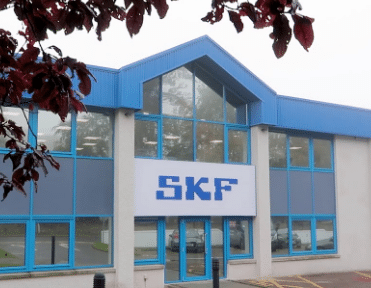
Introduction:
The axial load capacity of bearings is a crucial parameter that determines their ability to withstand and support axial forces. This parameter is of paramount importance in applications where axial loads are significant, such as in automotive, aerospace, and heavy machinery. NSK and SKF, two renowned bearing manufacturers, employ distinct approaches to axial load capacity in their bearing designs. In this comprehensive comparison, we delve into the axial load capacity of NSK bearings versus SKF bearings, highlighting the factors that differentiate them and their significance in various industrial applications.
Understanding Axial Load Capacity:
Axial load capacity in bearings refers to their ability to support and resist axial forces while maintaining their structural integrity. It is a critical factor for applications in which axial loads, either static or dynamic, play a significant role in the overall operation.
NSK Bearings:
NSK’s reputation for engineering excellence extends to their focus on maximizing axial load capacity in their bearing designs. Several key factors contribute to their bearings’ exceptional performance in this aspect:
Precision Manufacturing: NSK’s precision engineering ensures that their bearings can consistently withstand axial loads, minimizing deviations in load-bearing capabilities.
Advanced Materials: NSK employs high-quality materials that enhance the bearing’s ability to handle axial forces and maintain structural integrity under load.
Innovative Cage Designs: NSK’s advanced cage designs promote even load distribution within the bearing, reducing the risk of localized stress and enhancing axial load capacity.
High Load Ratings: NSK offers bearings with high axial load ratings, indicating their capacity to withstand significant axial forces.
Customization for Axial Load: NSK provides customization options to address applications with unique axial load requirements, ensuring the bearing can meet specific demands.
Rigorous Testing: NSK’s quality control processes include testing for axial load capacity to confirm that their bearings can perform reliably under axial stress.
SKF Bearings:
SKF, another esteemed manufacturer, places a strong emphasis on optimizing axial load capacity in its bearing designs. The following features set SKF bearings apart in terms of axial load capacity:
Precision Manufacturing: SKF’s precision engineering ensures that their bearings can consistently withstand axial loads, reducing the risk of variations in load-bearing capabilities.
High-Performance Materials: SKF employs high-performance materials that contribute to the bearing’s ability to handle axial forces while maintaining structural integrity.
Cage Designs for Load Distribution: SKF’s cage designs are engineered to provide even load distribution within the bearing, minimizing localized stress and enhancing axial load capacity.
High Axial Load Ratings: SKF offers bearings with high axial load ratings, indicating their capacity to withstand substantial axial forces.
Customization for Axial Load: SKF provides customization options to address applications with unique axial load requirements, ensuring the bearing can meet specific demands.
Comprehensive Quality Control: SKF’s stringent quality control processes include thorough testing for axial load capacity, confirming that their bearings can perform reliably under axial stress.
Conclusion:
Axial load capacity is a critical parameter in many industries, especially in applications where axial loads are substantial. Both NSK and SKF are esteemed manufacturers, and each offers unique advantages in terms of axial load capacity in their bearings.
NSK’s bearings are recognized for their precision manufacturing, advanced materials, innovative cage designs, high load ratings, customization options, and rigorous testing. These features make NSK bearings an excellent choice for applications where axial load capacity is crucial.
Similarly, SKF’s focus on precision manufacturing, high-performance materials, cage designs for load distribution, high axial load ratings, customization, and comprehensive quality control ensures that their bearings excel in supporting substantial axial forces.
The choice between NSK and SKF bearings for applications that demand high axial load capacity depends on the specific requirements of the application. Careful consideration of factors such as axial load magnitude, operating conditions, and customization options will enable you to make an informed decision to optimize the load-bearing capabilities of your machinery.
